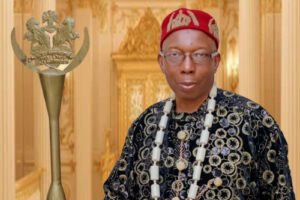
South Sudan Vice-President Riek Machar Charged with Murder and Treason
South Sudan’s First Vice-President Riek Machar has been charged with murder, treason, and crimes against humanity. The charges against Machar relate to an attack committed by a militia linked with the vice president in March. His house arrest since then has deepened the rift between him and President Salva Kiir. The March attack was carried out by the White Army militia, largely made up of fighters from the Nuer ethnic group, the same as Machar. They overran an army base in the north-eastern town of Nasir, reportedly killing 250 soldiers and a general. A UN helicopter also came under fire, leading to the death of its pilot. Justice Minister Joseph Geng Akech said that seven of Machar’s allies, including Petroleum Minister Puot Kang Chol and Army Deputy Chief of Staff Lt Gen Gabriel Duop Lam, were also charged. They are all Machar allies who were arrested at the same time as him and have also been in detention ever since. Another 13 suspects remain at large.
South African Men Win Right to Take Wives’ Surnames in Landmark Ruling
Keep up with the latest headlines on WhatsApp | LinkedIn
South Africa’s Constitutional Court has ruled that husbands can take the surname of their wives, overturning a colonial-era law that barred them from doing so and was deemed discriminatory. The case was brought by two couples who sued the Department of Home Affairs for gender discrimination. Henry van der Merwe and Jana Jordaan, and Andreas Nicolas Bornman and Jess Donnelly-Bornman, after the men were denied the right to assume or hyphenate their wives’ surnames. The law was introduced in South Africa during the years of white-minority rule. The couples argued that the law was archaic and patriarchal, and violated equality rights enshrined in the constitution that South Africa adopted at the end of apartheid in 1994. The court said that many African cultures traditionally allowed women to keep their birth names and children to take maternal clan names, but colonial laws suppressed these practices. Parliament was instructed to amend the Births and Deaths Registration Act to give effect to the judgment.
Ethiopia Rings in the New Year
Ethiopians and people of Ethiopian origin around the world celebrated the 2018 Ethiopian New Year at events hosted by Ethiopian missions in various countries. The country has its own unique calendar, meaning it is seven years behind the Western calendar. The seven-year gap comes down to the fact that the birth year of Jesus Christ is calculated differently in Ethiopia. When the Catholic Church amended its calculation in 500 AD, the Ethiopian Orthodox Church did not. The diaspora expressed joy over the inauguration of the Grand Ethiopian Renaissance Dam (GERD) and pledged to continue supporting Ethiopia’s development and growth. Celebrations were held in countries including the United States, France, Belgium, the United Kingdom, Russia, Kuwait, Saudi Arabia, the United Arab Emirates, India, Pakistan, Rwanda, and Djibouti.
Sign up for free AllAfrica Newsletters
Get the latest in African news delivered straight to your inbox
Success!
Almost finished…
We need to confirm your email address.
To complete the process, please follow the instructions in the email we just sent you.
Error!
There was a problem processing your submission. Please try again later.
Judiciary Faces Renewed Scrutiny Over Bribery Allegations
Kenya’s Judiciary is facing renewed scrutiny after Captain (Rtd.) Kung’u Muigai, a cousin of former President Uhuru Kenyatta, accused senior judges of taking millions in bribes to rule against him in a 33-year loan dispute with Kenya Commercial Bank (KCB). He alleged corrupt deals, from a dramatic tale of lost court files, phantom consent judgments, and judges allegedly pocketing cash in hotel basements and supermarket parking lots. His claims, which name both former and sitting judges, echo long-standing criticism from lawyers like Ahmednasir Abdullahi, who has repeatedly branded the Supreme Court as deeply corrupt. Muigai’s allegations were dismissed as malicious and unfounded by the Judiciary. The controversy has reignited public concerns that justice in Kenya may still be vulnerable to money and political influence.
African Leaders Demand Fair Climate Funding Ahead of COP30
The second continental climate summit in Addis Ababa ended with a call for more money, a fairer funding system, and a stronger voice. The summit closed with the Addis Ababa Declaration – a plan that AU leaders say should reframe Africa not as a victim of climate change, but as a source of solutions. The aim was to agree on a common position ahead of COP30 in Brazil. Three pillars of the declaration are: accelerating renewable energy to make Africa a green industrial power, forming a coalition on critical minerals, and protecting natural heritage. Their goal is to reframe Africa as a source of climate solutions rather than a victim. African leaders also called for $50 billion annually in climate finance reform for adaptation and innovation, including the Africa Climate Innovation Compact.





